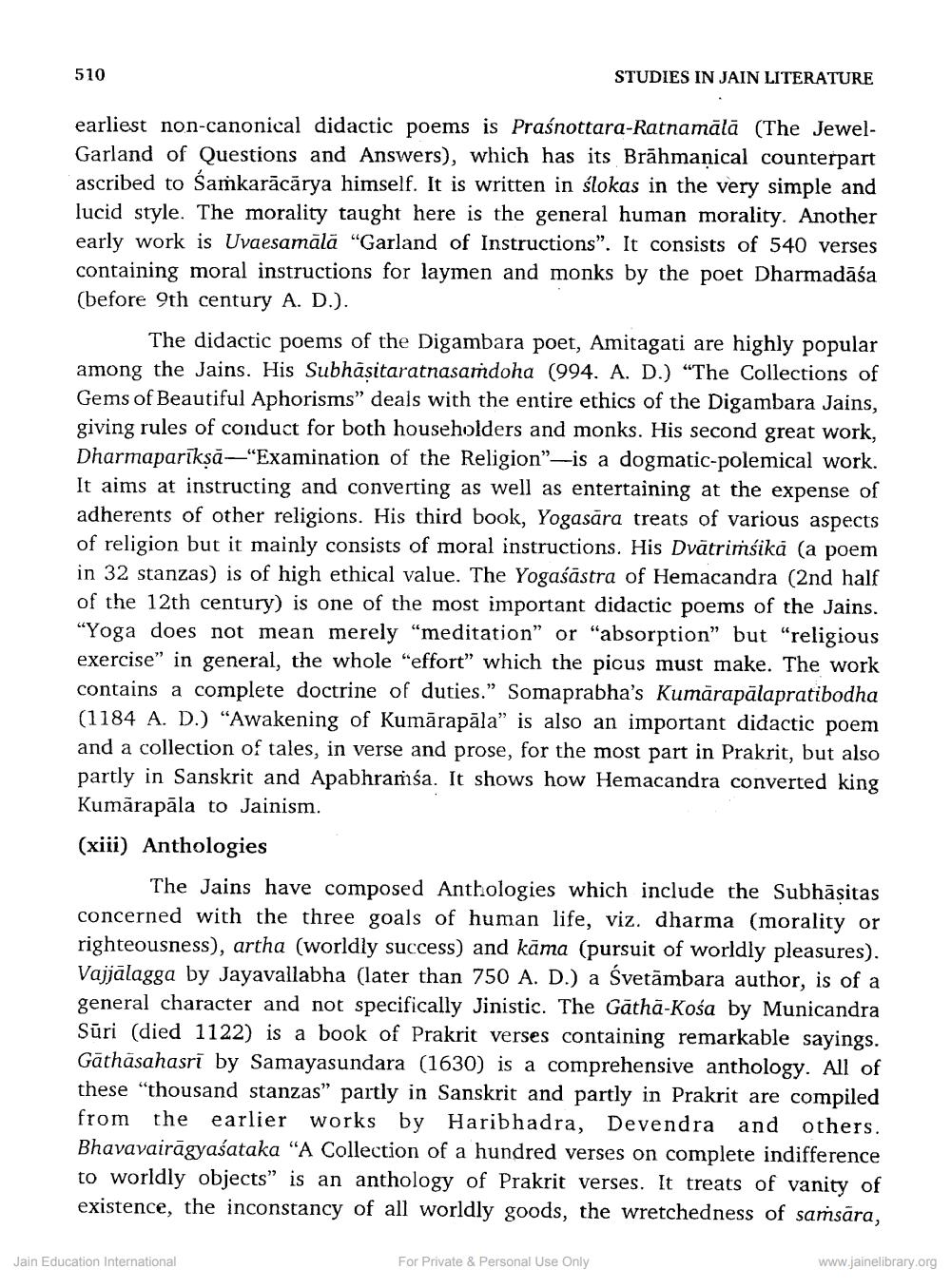________________ 510 STUDIES IN JAIN LITERATURE earliest non-canonical didactic poems is Prasnottara-Ratnamala (The JewelGarland of Questions and Answers), which has its Brahmanical counterpart ascribed to samkaracarya himself. It is written in slokas in the very simple and lucid style. The morality taught here is the general human morality. Another early work is Uvaesamala "Garland of Instructions". It consists of 540 verses containing moral instructions for laymen and monks by the poet Dharmadasa (before 9th century A. D.). The didactic poems of the Digambara poet, Amitagati are highly popular among the Jains. His Subhasitaratnasamdoha (994. A. D.) "The Collections of Gems of Beautiful Aphorisms" deals with the entire ethics of the Digambara Jains, giving rules of conduct for both householders and monks. His second great work, Dharmapariksa--"Examination of the Religion"-is a dogmatic-polemical work. It aims at instructing and converting as well as entertaining at the expense of adherents of other religions. His third book, Yogasara treats of various aspects of religion but it mainly consists of moral instructions. His Dvatrimsika (a poem in 32 stanzas) is of high ethical value. The Yogasastra of Hemacandra (2nd half of the 12th century) is one of the most important didactic poems of the Jains. "Yoga does not mean merely "meditation" or "absorption" but "religious exercise" in general, the whole "effort" which the picus must make. The work contains a complete doctrine of duties." Somaprabha's Kumarapalapratibodha (1184 A. D.) "Awakening of Kumarapala" is also an important didactic poem and a collection of tales, in verse and prose, for the most part in Prakrit, but also partly in Sanskrit and Apabhramsa. It shows how Hemacandra converted king Kumarapala to Jainism. (xiii) Anthologies The Jains have composed Anthologies which include the Subhasitas concerned with the three goals of human life, viz. dharma (morality or righteousness), artha (worldly success) and kama (pursuit of worldly pleasures). Vajjalagga by Jayavallabha (later than 750 A. D.) a Svetambara author, is of a general character and not specifically Jinistic. The Gatha-Kosa by Municandra Suri (died 1122) is a book of Prakrit verses containing remarkable sayings. Gathasahasri by Samayasundara (1630) is a comprehensive anthology. All of these "thousand stanzas" partly in Sanskrit and partly in Prakrit are compiled from the earlier works by Haribhadra. Devendra and others. Bhavavairagyasataka "A Collection of a hundred verses on complete indifference to worldly objects" is an anthology of Prakrit verses. It treats of vanity of existence, the inconstancy of all worldly goods, the wretchedness of samsara, Jain Education International For Private & Personal Use Only www.jainelibrary.org




